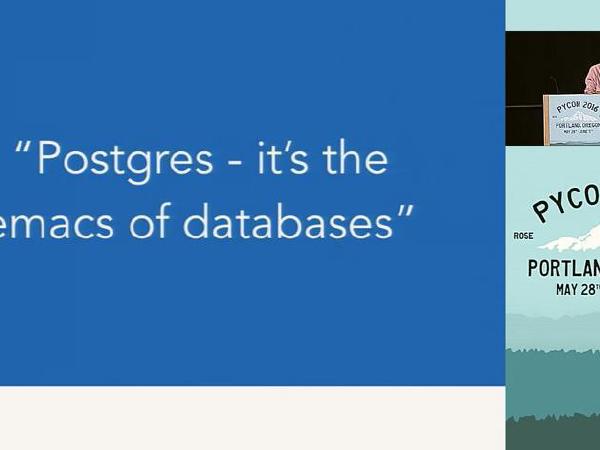Postgresql
2025

Avoiding Timezone Traps: Correctly Extracting Date/Time Subfields in Django with PostgreSQL
Working with timezones can sometimes lead to confusing results,
especially when combining Django's ORM, raw SQL for performance (like
in PostgreSQL materialized views), and specific timezone requirements. I
recently had an issue while aggregating traffic stop data by year, where
all yearly calculations needed to reflect the 'America/New_York'
(EST/EDT) timezone, even though our original data contained
timestamp with time zone fields. We were using
django-pgviews-redux
to manage materialized views, and I mistakenly attempted to apply
timezone logic to a date field that had no time or timezone
information.

Tips for Tracking Django Model Changes with django-pghistory
Django and its admin interface are a big part of why Caktus uses Django, but the admin's ability to log database changes is limited. For example, it shows only changes made via the Django admin, not via other parts of the site.

How to Use regexp_matches and regexp_match in PostgreSQL
Introduction
regexp_matches() and regexp_match() are two similar string
functions
that support regular expression matching directly in the PostgreSQL
database. regexp_matches() was added in PostgreSQL
8.3, and
regexp_match() was added in PostgreSQL
10 (keep reading to see
how ChatGPT struggled to answer this question).
2024

Getting Started with Dagster
Recently, Caktus has been using Tailscale to manage VPN connections between Android tablets and a central server. We wanted to report on the devices connected to the network using the Tailscale API. While we could use tools like Celery to fetch data from the API and load it into a database—given its widespread use in the Django ecosystem—we also wanted to explore other options.
2020

How to Use Kubernetes on Azure for Cloud Computing
For the Review, Appraisal, and Triage of Mail (RATOM) project, funded by the Andrew W. Mellon Foundation, we were tasked with deploying to a Microsoft Azure environment. More details about the project are in our first blog post in this Learn With Us blog series. Caktus has experience with Amazon Web Services (AWS) and Google Cloud, but we hadn't had the opportunity to use Azure yet, so we looked forward to the opportunity to use that environment and document our experience. The entire deployment process is available on GitHub as a reference under the StateArchivesOfNorthCarolina/ratom-deploy repository.
2016

Postgres Present and Future (PyCon 2016 Must-See Talk: 6/6)
Part six of six in our annual PyCon Must-See Series, a weekly highlight of talks our staff especially loved at PyCon. With so many fantastic talks, it’s hard to know where to start, so here’s our short list.

Query Expressions are Amazing
The Django 1.8 release added support for complex query expressions. The documentation has some nice examples but they don't do justice to how crazy awesome these are. In this post, we will go through some additional examples of how to leverage these expressions.
2011

OpenBlock Geocoder, Part 1: Data Model and Geocoding
As Tobias mentioned in Scraping Data and Web Standards, Caktus is collaborating with the UNC School of Journalism to help develop Open Rural (the code is on GitHub). Open Rural hopes to help rural newspapers in North Carolina leverage OpenBlock. This blog post is the first of several covering the internals of OpenBlock and, specifically, the geocoder.
2010

Basic Django deployment with virtualenv, fabric, pip and rsync
Deployment is usually a tedious process with lots of tinkering until everything is setup just right. We deploy quite a few Django sites on a regular basis here at Caktus and still do tinkering, but we've attempted to functionalize some of the core tasks to ease the process. I've put together a basic example that outlines local and remote environment setup. This is a simplified example and just one of many ways to deploy a Django project (I learned a lot from Jacob Kaplan-Moss' django-deployment-workshop), so I encourage you to browse around the Django community to learn more. The entire source for this example project can be found in the caktus-deployment Bitbucket repository.
2009

Setting PostgreSQL's SHMMAX in Mac OS X 10.5 (Leopard)
If you've ever tried to increase the shared_buffers setting in your postgresql.conf to a value that exceeds the amount of shared memory supported by your operating system kernel, then you'll see an error message like this: